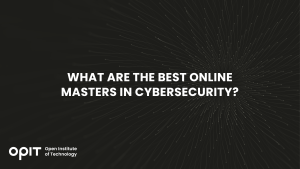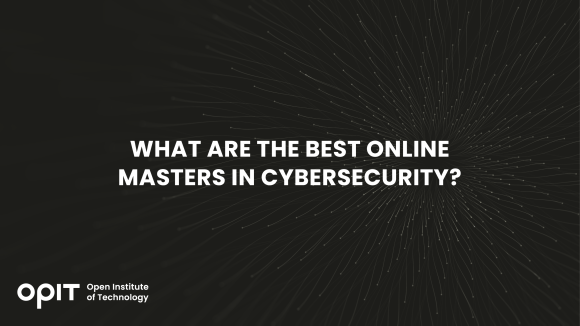There is no question that the spread of artificial intelligence (AI) is having a profound impact on nearly every aspect of our lives.
But is an AI-powered future one to be feared, or does AI offer the promise of a “lucky future.”
That “lucky future” prediction comes from Zorina Alliata, principal AI Strategist at Amazon and AI faculty member at Georgetown University and the Open Institute of Technology (OPIT), in her recent webinar “The Lucky Future: How AI Aims to Change Everything” (February 18, 2025).
However, according to Alliata, such a future depends on how the technology develops and whether strategies can be implemented to mitigate the risks.
How AI Aims to Change Everything
For many people, AI is already changing the way they work. However, more broadly, AI has profoundly impacted how we consume information.
From the curation of a social media feed and the summary answer to a search query from Gemini at the top of your Google results page to the AI-powered chatbot that resolves your customer service issues, AI has quickly and quietly infiltrated nearly every aspect of our lives in the past few years.
While there have been significant concerns recently about the possibly negative impact of AI, Alliata’s “lucky future” prediction takes these fears into account. As she detailed in her webinar, a future with AI will have to take into consideration:
- Where we are currently with AI and future trajectories
- The impact AI is having on the job landscape
- Sustainability concerns and ethical dilemmas
- The fundamental risks associated with current AI technology
According to Alliata, by addressing these risks, we can craft a future in which AI helps individuals better align their needs with potential opportunities and limitations of the new technology.
Industry Applications of AI
While AI has been in development for decades, Alliata describes a period known as the “AI winter” during which educators like herself studied AI technology, but hadn’t arrived at a point of practical applications. Contributing to this period of uncertainty were concerns over how to make AI profitable as well.
That all changed about 10-15 years ago when machine learning (ML) improved significantly. This development led to a surge in the creation of business applications for AI. Beginning with automation and robotics for repetitive tasks, the technology progressed to data analysis – taking a deep dive into data and finding not only new information but new opportunities as well.
This further developed into generative AI capable of completing creative tasks. Generative AI now produces around one billion words per day, compared to the one trillion produced by humans.
We are now at the stage where AI can complete complex tasks involving multiple steps. In her webinar, Alliata gave the example of a team creating storyboards and user pathways for a new app they wanted to develop. Using photos and rough images, they were able to use AI to generate the code for the app, saving hundreds of hours of manpower.
The next step in AI evolution is Artificial General Intelligence (AGI), an extremely autonomous level of AI that can replicate or in some cases exceed human intelligence. While the benefits of such technology may readily be obvious to some, the industry itself is divided as to not only whether this form of AI is close at hand or simply unachievable with current tools and technology, but also whether it should be developed at all.
This unpredictability, according to Alliata, represents both the excitement and the concerns about AI.
The AI Revolution and the Job Market
According to Alliata, the job market is the next area where the AI revolution can profoundly impact our lives.
To date, the AI revolution has not resulted in widespread layoffs as initially feared. Instead of making employees redundant, many jobs have evolved to allow them to work alongside AI. In fact, AI has also created new jobs such as AI prompt writer.
However, the prediction is that as AI becomes more sophisticated, it will need less human support, resulting in a greater job churn. Alliata shared statistics from various studies predicting as many as 27% of all jobs being at high risk of becoming redundant from AI and 40% of working hours being impacted by language learning models (LLMs) like Chat GPT.
Furthermore, AI may impact some roles and industries more than others. For example, one study suggests that in high-income countries, 8.5% of jobs held by women were likely to be impacted by potential automation, compared to just 3.9% of jobs held by men.
Is AI Sustainable?
While Alliata shared the many ways in which AI can potentially save businesses time and money, she also highlighted that it is an expensive technology in terms of sustainability.
Conducting AI training and processing puts a heavy strain on central processing units (CPUs), requiring a great deal of energy. According to estimates, Chat GPT 3 alone uses as much electricity per day as 121 U.S. households in an entire year. Gartner predicts that by 2030, AI could consume 3.5% of the world’s electricity.
To reduce the energy requirements, Alliata highlighted potential paths forward in terms of hardware optimization, such as more energy-efficient chips, greater use of renewable energy sources, and algorithm optimization. For example, models that can be applied to a variety of uses based on prompt engineering and parameter-efficient tuning are more energy-efficient than training models from scratch.
Risks of Using Generative AI
While Alliata is clearly an advocate for the benefits of AI, she also highlighted the risks associated with using generative AI, particularly LLMs.
- Uncertainty – While we rely on AI for answers, we aren’t always sure that the answers provided are accurate.
- Hallucinations – Technology designed to answer questions can make up facts when it does not know the answer.
- Copyright – The training of LLMs often uses copyrighted data for training without permission from the creator.
- Bias – Biased data often trains LLMs, and that bias becomes part of the LLM’s programming and production.
- Vulnerability – Users can bypass the original functionality of an LLM and use it for a different purpose.
- Ethical Risks – AI applications pose significant ethical risks, including the creation of deepfakes, the erosion of human creativity, and the aforementioned risks of unemployment.
Mitigating these risks relies on pillars of responsibility for using AI, including value alignment of the application, accountability, transparency, and explainability.
The last one, according to Alliata, is vital on a human level. Imagine you work for a bank using AI to assess loan applications. If a loan is denied, the explanation you give to the customer can’t simply be “Because the AI said so.” There needs to be firm and explainable data behind the reasoning.
OPIT’s Masters in Responsible Artificial Intelligence explores the risks and responsibilities inherent in AI, as well as others.
A Lucky Future
Despite the potential risks, Alliata concludes that AI presents even more opportunities and solutions in the future.
Information overload and decision fatigue are major challenges today. Imagine you want to buy a new car. You have a dozen features you desire, alongside hundreds of options, as well as thousands of websites containing the relevant information. AI can help you cut through the noise and narrow the information down to what you need based on your specific requirements.
Alliata also shared how AI is changing healthcare, allowing patients to understand their health data, make informed choices, and find healthcare professionals who meet their needs.
It is this functionality that can lead to the “lucky future.” Personalized guidance based on an analysis of vast amounts of data means that each person is more likely to make the right decision with the right information at the right time.
Check out OPIT degrees
-
Career aligned
-
Fully Online
-
EU-accredited institution






